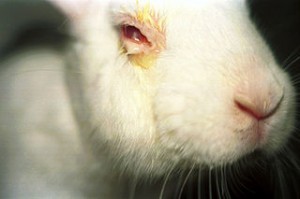
More evidence that low-calorie sweeteners are bad for your health
Studies show that artificial sweeteners can raise the risk of hypertension, metabolic syndrome, type 2 diabetes and heart disease, including stroke.

A number of companies have recently come under fire for opting to sell in China, and triggering outdated animal tests.
This comes at a time when the European Commission is considering a change to the proposed animal testing ban in Europe, due to be implemented in full from March 2013. It appears that this ugly practice is far from over and the industry continues to evade the issue.
Over the years much progress has been made by animal protection campaigners, to convince governments and regulators of the ethical and scientific benefits to adopting humane non-animal test methods. Safety is of the utmost concern, and in the western world, it is now accepted that non-animal methods are more predictive of human behaviour and therefore more reliable.
International challenges
The UK has historically taken the lead in all areas of animal protection. Then, in 2004 the European Parliament voted to ban animal testing for beauty products, a ban which would be introduced in phases, the final phase from 2013 would not allow any animal tests to be performed anywhere in the world for products sold in Europe, on either the product or its ingredients.
Despite this progress in Europe and strong public opposition worldwide, most countries still allow animal testing and some regulatory bodies even require it in certain cases.
The China question
Last year it became apparent that in China, there is a different approach to safety testing. Before any beauty product is imported to China, the authorities there must issue a licence. The licence registration process requires a battery of safety tests using animals, notably rabbits, guinea pigs, mice and rats.
Companies which choose to take advantage of the rapidly-growing Chinese consumer market are, therefore, opting for ‘profit over principles’.For that reason, as recently reported in the media, a number of companies have had their official “cruelty-free” status revoked, and had to remove the Leaping Bunny label from their products.
Conversely, other companies, whose ethics remain at the heart of their business, have taken a stand and chosen not to invest in the Chinese market.
The question remains is how companies which market their products both in China and in Europe, will be able to satisfy both legal requirements come March 2013, should the EU ban go ahead as planned. It is clear that an international approach to harmonised law is required before there can finally be an end to this cruel and unnecessary practice.
Cruelty Free International
With this in mind, a new organisation was launched this year to tackle the issue at a global level. Cruelty Free International will call on governments around the world to ban animal testing for cosmetic and toiletry products.
Founded by the BUAV, and endorsed by ambassador Ricky Gervais, Cruelty Free International is dedicated to ending product testing on animals. . Following success in Europe, Cruelty Free International will use its wealth of experience to achieve a better deal for animals around the world.
In particular, we have begun to address the situation in China with industry and government experts; our goal is to gain acceptance in China for the well-established methods that are available as alternatives to animal tests. Early signs are positive, suggesting a slow shift in attitude, and that the Chinese are open to the acceptance of alternative methods.
The first alternative test has now been approved, and more are expected to follow over the coming years. China’s cosmetics industry has the capability to become an integral part of the solution in ending animal testing and Cruelty Free International will continue to work with local government and regulators to that end.
Look for the Leaping Bunny
Cruelty Free International is also responsible for operating the only international certification for beauty and cleaning products which are not tested on animals. Certified companies carry the Leaping Bunny logo which demonstrates they have a sound and enforced animal testing policy.
While many companies claim that their products are not tested on animals, there is currently no legislation in place to test these claims. The lack of transparency in this area and the challenges of international harmonisation only make it more difficult for consumers to know which brands are genuinely cruelty free.
The Leaping Bunny certification demands an independent audit of certified companies to ensure they remain compliant with the Humane Standards. It is recognised as the label to trust, providing peace of mind to conscientious shoppers.

Please subscribe me to your newsletter mailing list. I have read the
privacy statement